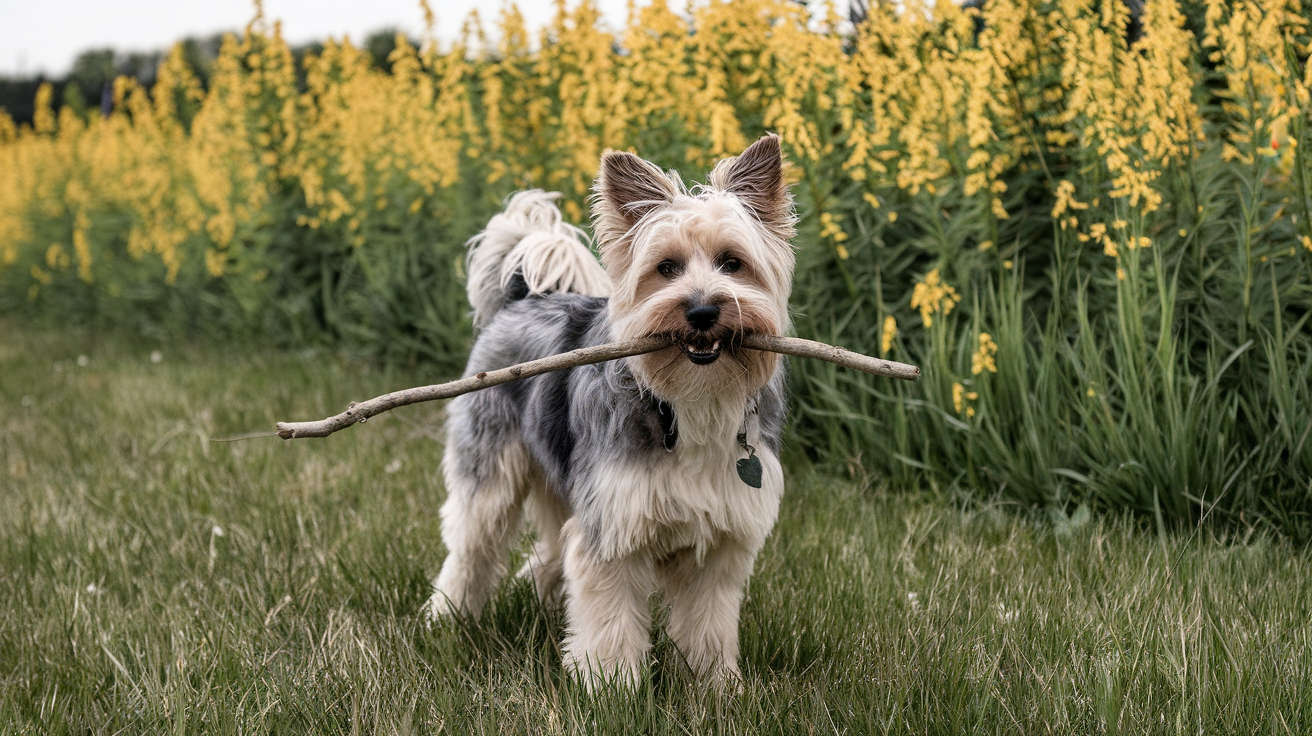Introduction To Calming Anxious Dogs with Nutrition
If you have an anxious dog, you know how distressing it can be for both of you. Whether it’s the loud noises of fireworks, the separation anxiety when you leave the house, or fear of new environments, your dog’s anxiety can make everyday life challenging. But did you know that nutrition can play a key role in calming anxious dogs? By offering the right foods and supplements, you can help soothe your dog’s nerves and improve their overall well-being.
1. Understanding Canine Anxiety
Before we dive into the dietary solutions, let’s first understand what canine anxiety is and how it affects dogs. Much like humans, dogs can experience anxiety for a variety of reasons, including:
- Separation anxiety: Dogs often feel stressed when left alone.
- Noise phobia: Thunderstorms or fireworks can trigger intense fear.
- Travel anxiety: Long car trips or changes in environment can be stressful for some dogs.
- General stress: Changes in the home, such as new people or pets, can create anxiety.
Signs of anxiety in dogs include excessive barking, drooling, panting, destructive behavior, and attempts to escape. Identifying the cause of your dog’s anxiety is essential, as it will help determine the right solution, including diet changes.
2. How Nutrition Affects Dog Anxiety
Nutrition plays a significant role in a dog’s mental and emotional health. Just like humans, dogs’ brains and nervous systems rely on nutrients to function properly. Certain nutrients can either contribute to or alleviate anxiety symptoms. Here’s how nutrition can affect your dog’s stress levels:
- Serotonin Production: Serotonin is a neurotransmitter that helps regulate mood. Foods rich in tryptophan, such as turkey and chicken, can promote the production of serotonin, which can have a calming effect.
- Omega-3 Fatty Acids: Omega-3s, found in fish like salmon, help reduce inflammation in the brain and support overall cognitive function, potentially reducing anxiety.
- Antioxidants: Nutrients like vitamin E and vitamin C help fight stress by protecting the brain from oxidative damage.
- B Vitamins: B vitamins support healthy brain function and can help stabilize mood.
By providing your dog with the right nutrients, you can promote a calmer, more balanced emotional state.
3. Best Foods for Anxious Dogs
Now, let’s talk about the foods that can help calm your anxious dog. While every dog is different, there are certain foods that are known for their anxiety-reducing properties.
- Chicken and Turkey: These lean meats are high in tryptophan, which can boost serotonin levels in the brain. Many owners report that feeding their dog turkey or chicken helps them feel more relaxed.
- Salmon: Rich in omega-3 fatty acids, salmon supports brain health and can reduce anxiety symptoms. It’s also a great source of protein and healthy fats.
- Sweet Potatoes: These are full of complex carbohydrates, which help stabilize blood sugar levels and prevent mood swings. Sweet potatoes also contain antioxidants that help reduce inflammation in the brain.
- Oats: Oats are a great source of B vitamins and are easy on your dog’s stomach. They can help keep your dog calm and regulate their blood sugar, reducing irritability.
- Blueberries: High in antioxidants, blueberries can help reduce inflammation and protect the brain. They also offer a burst of natural sweetness, which makes them a great treat for anxious dogs.
4. Supplements to Calm Anxious Dogs
In addition to whole foods, there are several supplements designed specifically to calm anxious dogs. Here are a few that have been proven effective:
- L-theanine: Found naturally in green tea, L-theanine has a calming effect on both humans and dogs. It can help reduce anxiety by increasing the production of serotonin and dopamine.
- CBD Oil: CBD (cannabidiol) has gained popularity for its ability to reduce anxiety in dogs. Research suggests that it can help manage symptoms of anxiety without causing sedation.
- Valerian Root: This herbal supplement is known for its calming effects. It can be especially helpful in managing acute stress or fear-related anxiety.
- Probiotics: Believe it or not, the gut and brain are closely connected. Probiotics can help balance your dog’s gut health, which may have a positive effect on their mood and anxiety levels.
- Melatonin: This supplement helps regulate sleep patterns and can promote relaxation. It’s particularly useful for dogs with separation anxiety or those who struggle with sleep.
5. The Role of Hydration in Anxiety
While we often focus on solid foods, hydration is equally important. Dehydration can lead to irritability, fatigue, and increased stress levels. Always make sure your dog has access to fresh water, especially during periods of anxiety.
In fact, certain hydration products designed for dogs, such as calming water additives, can help soothe your dog’s nerves while keeping them hydrated. These products often contain ingredients like chamomile or lavender, which are known for their calming properties.
6. Creating a Calming Routine with Food
Along with choosing the right foods and supplements, establishing a calming routine for your dog can significantly reduce their anxiety. Here are a few steps to consider:
- Regular Feeding Schedule: Consistency is key when it comes to feeding. Try to feed your dog at the same time each day, as this helps them feel secure and reduces stress.
- Calming Treats: Offer calming treats throughout the day to help manage your dog’s anxiety. Look for treats with ingredients like chamomile, lavender, or L-theanine.
- Meal Preparation: Make mealtime a calming experience by preparing your dog’s food in a relaxed environment. Avoid feeding during high-stress moments, such as when there are loud noises or distractions.
7. Tips for Calming Anxious Dogs with Nutrition
Dogs often become anxious when they encounter new situations. Here’s how you can use nutrition to help them adjust:
- Take It Slow: Gradually introduce your dog to new environments or situations. Offering calming foods and supplements before these events can help ease their nerves.
- Positive Reinforcement: Reward your dog with treats and praise for calm behavior. Over time, they’ll learn to associate new situations with positive outcomes.
- Exercise: Regular exercise can help release pent-up energy and reduce stress. Just make sure to keep exercise sessions calm and enjoyable to prevent overstimulation.
8. When to Seek Professional Help
While nutrition plays a vital role in calming anxious dogs, there may be times when professional help is needed. If your dog’s anxiety is severe or doesn’t improve with dietary changes, consider consulting a veterinarian or a canine behaviorist. They can provide tailored advice and recommend additional treatments, such as behavioral therapy or medication.
Frequently Asked Questions on Calming Anxious Dogs with Nutrition
1. Can nutrition help calm an anxious dog?
Yes, certain foods and supplements can help reduce anxiety in dogs. Ingredients like tryptophan, omega-3 fatty acids, and B vitamins support mood regulation and relaxation.
2. What foods are best for calming anxious dogs?
Foods rich in turkey, salmon, sweet potatoes, and oats are great for calming anxious dogs. These ingredients promote brain health and help reduce stress.
3. Are there supplements for anxious dogs?
Yes, CBD oil, L-theanine, valerian root, and probiotics can all help manage anxiety in dogs. Always check with a vet before introducing new supplements.
4. Can a dog’s diet affect their anxiety levels?
Absolutely. A well-balanced diet with calming nutrients like omega-3s and tryptophan can significantly improve your dog’s emotional well-being.
5. How long does it take for calming food to work on anxious dogs?
It can take a few weeks of consistent dietary changes to see noticeable improvements in your dog’s anxiety.
Final Words on Calming Anxious Dogs with Nutrition
Anxious dogs can be challenging, but with the right nutrition and care, you can help them feel more at ease. Start by incorporating calming foods and supplements into their diet, create a consistent routine, and provide plenty of positive reinforcement.
Remember, calming an anxious dog takes time and patience. Be consistent, and don’t hesitate to seek professional help if needed. With the right approach, you can help your dog feel secure and relaxed in any situation.
If you’re ready to take the next step in helping your anxious dog, consider exploring our recommended calming products available in the UK. Check out our top calming supplements and foods for anxious dogs and help your dog find the peace they deserve.
Hyper Links:



